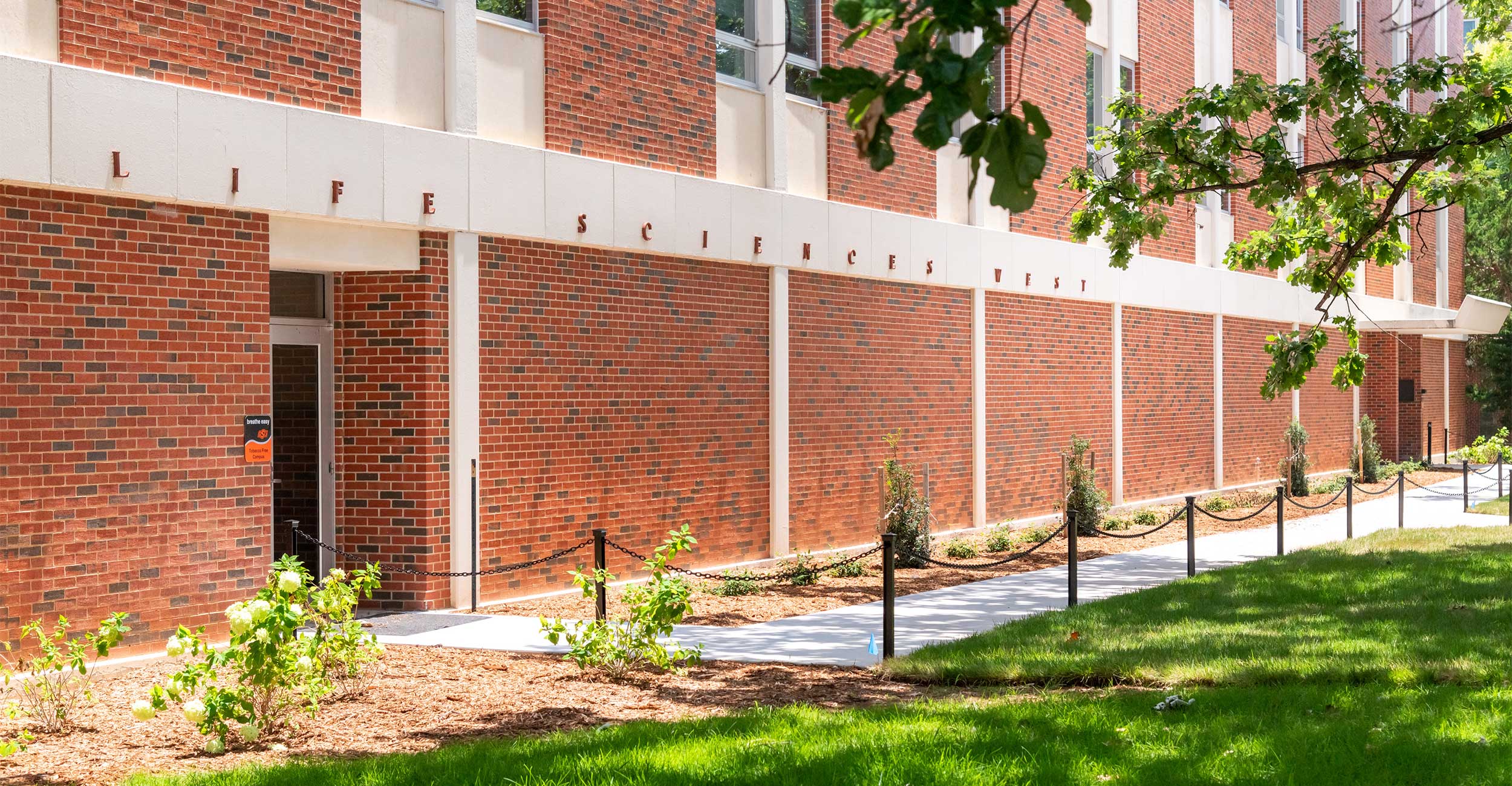
NSF-funded mentoring program welcomes first cohort of biological sciences researchers
Tuesday, July 25, 2023
Media Contact: Elizabeth Gosney | CAS Marketing and Communications Manager | 405-744-7497 | egosney@okstate.edu
Since receiving its $2.7 million grant from the National Science Foundation in August 2022, the Oklahoma Network - Research and Mentoring for Post-baccalaureates (ON-RaMP) program at Oklahoma State University has begun working with its first group of eight biological sciences graduates.
“The ON-RaMP program brings a unique opportunity for people who have recently graduated to gain paid research experience,” said Dr. Elizabeth McCullagh, co-Principal Investigator of the ON-RaMP program. “As we have selected this first cohort of students, the importance of this program has become even more evident, particularly with the impact of the COVID-19 pandemic on research opportunities for undergraduates.”
Along with providing valuable experience, program co-PI Dr. Michael Reichert explained that another goal of the program is to promote researchers’ confidence.
“We want to improve the sense of belonging of our researchers as scientists,” Reichert said. “People who stick with scientific careers usually identify as scientists and unfortunately, we lose a lot of talented people from the field because they don’t see themselves as scientists. So, we want to give our participants the support and training they need to feel confident in their science identities.”
Currently, eight students are working with OSU faculty to conduct research and gain experience to launch their careers in the biological sciences. One of only 12 programs of its kind funded by the National Science Foundation, the ON-RaMP program is targeted toward post-baccalaureate students and pays them to conduct research full time.
Daniel Martinez
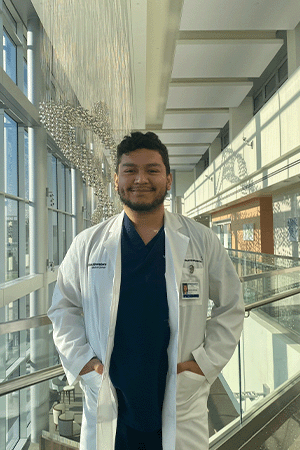
Daniel Martinez received a Bachelor of Science in biomedical sciences from Texas A&M University. In the lab, Martinez is working to create a new diagnostic method for breast cancer using organismal DNA (EDNA).
“My research is based around human genomics,” Martinez said. “The goal is to identify mutations in common genes that are known to cause breast cancer, that way we can determine the likelihood one might develop cancer, or after diagnoses of cancer we could determine the prognosis of the disease and determine the best possible treatment based on the gene mutation.”
After working with the program this year, Martinez hopes to pursue a degree in medicine to become a plastic surgeon or a Ph.D. in pharmaceutical sciences or neuroscience.
“ON-RaMP is exposing us directly to research with professors who are trying to make a difference in science,” Martinez said. “Within this year, we will learn different methods and procedures to conduct research and help us stand out when it comes to applying for future professional schools or careers.”
Genesis Alarcon
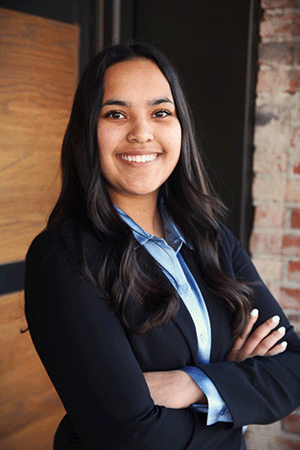
Genesis Alarcon received a Bachelor of Science in biology from Texas Tech University. Her research studies the effects of anthropogenic noise on wild rodents.
“We are seeking to answer how noises made by humans impacts the reception of sound in rodents in Oklahoma,” Alarcon said. “Utilizing brain anatomy, physiology and behavioral characteristics, I will measure anatomy and view the physiological changes when sound is played. I will also have the opportunity to characterize a burrow in the wild and recreate a similar habitat in the lab to view behavioral changes in response to acoustic noise.”
Working in the lab has opened new doors for Alarcon. She is hoping to apply her experience with the program to medical school.
“ON-RaMP has provided me with the necessary skills to expand my scientific knowledge and advance my education through hands-on learning,” Alarcon said. “Working with like-minded individuals sparks several academic interests that I would not have thought of otherwise.”
Carson Turner
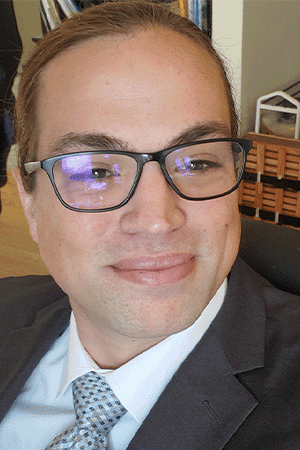
Carson Turner graduated from the University of Central Oklahoma, where he received a Bachelor of Science in biology. Turner is working in the lab to use geospatial information systems (GIS) to track species dispersal.
“I find the integration of geospatial software a crucial next step for many biological researchers,” Turner said. “I very much look forward to bringing those capabilities to the lab.”
Turner hopes to apply the experiences he is gathering in the lab to a career in GIS to address and combat climate change.
“ON-RaMP presented me with the opportunity to not only explore my interests in a professional research capacity, but also has the promise to exercise my pedagogical ambitions in higher education as well,” Turner said. “We are really just getting started, but I am very excited to see where this first real research experience takes me, and I am thankful for the opportunity.”
Victoria Rhodes
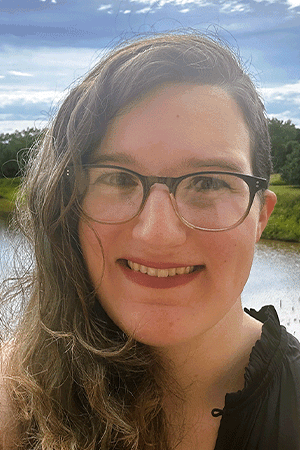
Victoria Rhodes received a Bachelor of Science in biology along with a forensic science certification from the University of North Texas. Rhodes is working with microplastics to understand the effects of UV-degradation and their effect on the planet.
“Microplastics as a whole are very under-researched,” Rhodes said. “I'm hoping to add more to the conversation and keep it going.”
Participating in the ON-RaMP program is Rhodes first exposure to research. She hopes that conducting research with faculty mentors will help her advance her aspirations to become a medical examiner.
“Being a part of this program will give me that experience and will hopefully open doors and allow me to stand out when applying for jobs,” Rhodes said. “I'm enjoying every minute of this experience. The challenges that I have been presented with while in the lab have given me the opportunity to expand my knowledge and experience.”
Alexius Wallace
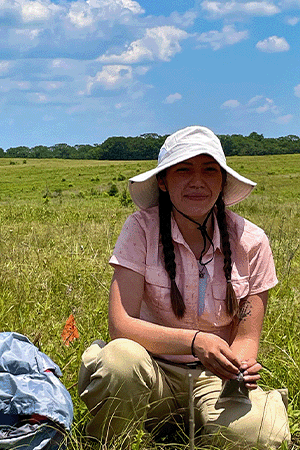
Alexius Wallace graduated from Southwestern Oklahoma State University with a Bachelor of Science degree in environmental and organismal biology. As a participant in the ON-RaMP program, Wallace is working in the lab to determine how drought impacts biodiversity, the formation of rhizosheaths and arbuscular mycorrhizal associations in rangelands.
“I have been working alongside Ph.D. candidate Elizabeth Haymaker in the field to collect plant specimens from Oklahoma and surrounding states,” Wallace said. “I hope that our research provides valuable information about the effects of climate change and will encourage people to do what they can to help preserve ecosystems.”
Using her experiences in the lab, Wallace plans to pursue graduate degrees studying plants to launch her own research in herbal medicine.
“I hope the research I conduct in the ON-RaMP program will demonstrate my desire to continue working in research and make a positive impact against climate change,” Wallace said.
Matthew Thompson
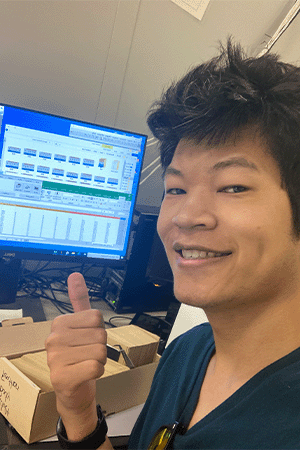
Matthew Thompson received a Bachelor of Science in biology from Gallaudet University. Through the ON-RaMP program, he will begin research with the Syrbula admirabilis grasshopper species and their color polymorphism.
“Color polymorphism occurs when an individual is capable of changing its body color to avoid detection by predators,” Thompson said. “However, the mechanisms behind grasshoppers’ color polymorphism are poorly understood. Therefore, this study will explore the effects of light, temperature and potentially other variables on color polymorphism.”
The program is providing Thompson with a space to explore his career interests and obtain experience in animal research.
“During my internship with Maryland Sea Grant in 2022, I gained research experience focusing on marine ecology,” Thompson said. “I have been able to apply my knowledge of research and experimental procedures gained from my previous internship to this program. I hope to continue to develop my skills along the way and build my network, whether opportunities are given in the meantime.”
Ally Whiteis
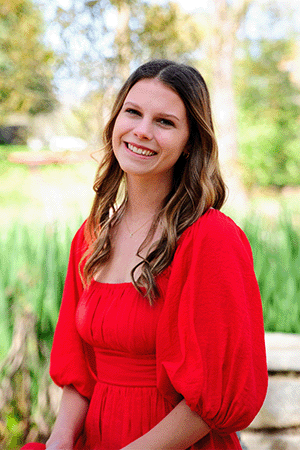
Ally Whiteis graduated from the University of Georgia with a Bachelor of Science in ecology. In the lab, Whiteis is researching the ecological impacts of redcedar encroachment.
“It is essential to understand how this disturbance will affect ecosystem services,” Whiteis said. “I hope that this research will provide valuable information that will allow policymakers and landowners to make management decisions regarding eastern redcedar encroachment.”
Whiteis says participating in the ON-RaMP program will help set her up for a future career with the Environmental Protection Agency or Department of Natural Resources.
“Being a part of ON-RaMP will allow me to get involved in different kinds of research projects and hopefully decide what I would like to pursue in graduate school,” Whiteis said. “This program will also allow me to understand how scientists get involved in policy.”
Emma Mills
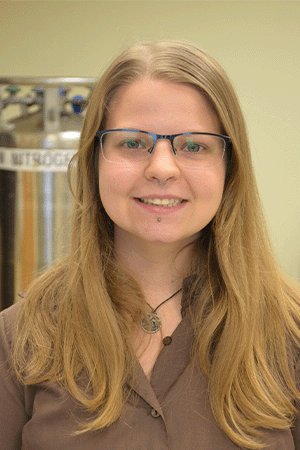
Emma Mills received a Bachelor of Science in organismic integrative biology from Northeastern State University. She is working with DNA from sediment cores found in Oklahoma’s Grand Lake.
“I hope that this research will allow for a better understanding of the history of algal blooms in the Grand Lake,” Mills said. “Using this data, we should be able to perform similar experiments in other lakes around the United States and draw even more conclusions from there. The findings could help create better lake management practices.”
With passions for environmental conservation and the climate crisis, Mills hopes the program will help her connect to others in the industry as she furthers her education.
“I’d like to continue my education and get my master’s in the biological sciences,” Mills said. “I know I’d like to work outside and with people. This would hopefully include educational outreach on conservation and the climate crisis.”
For more information, visit the ON-RaMP website.
Story By: Erin Weaver, CAS Communications Coordinator | erin.weaver@okstate.edu
